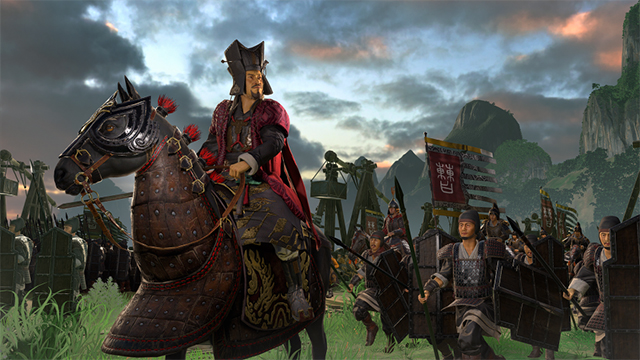The internal warfare that plagued China for centuries has been the subject of many forms of entertainment from books to video games. And Total War Three Kingdoms, the latest installment in the long-running strategy franchise, is planning to tackle that period head-on. The game is specifically targeting the Three Kingdoms period between 220 and 280 A.D., which is set amid the turbulent period that saw the Han dynasty brought to a close. Its geopolitics, coupled with the sheer number of characters at play, make it an intriguing prospect—and one that Total War aficionados have wanted for years according to Al Bickham, Creative Assembly’s communications manager.
“People on our forums have been telling us to do Three Kingdoms, and we’ve been like ‘We’ll get there one day!’ so the time has come,” said Bickham. “Ancient China totally aligns with the Total War games. It’s a perfect setting. You’ve got a massive civil war across the entire country, multiple factions—any of whom could have floated to the top—and we’ve got a period that isn’t just interesting for sociological, geopolitical and military points of view, but is also driven by really interesting characters.”
Taking Inspiration From a Classic Novel
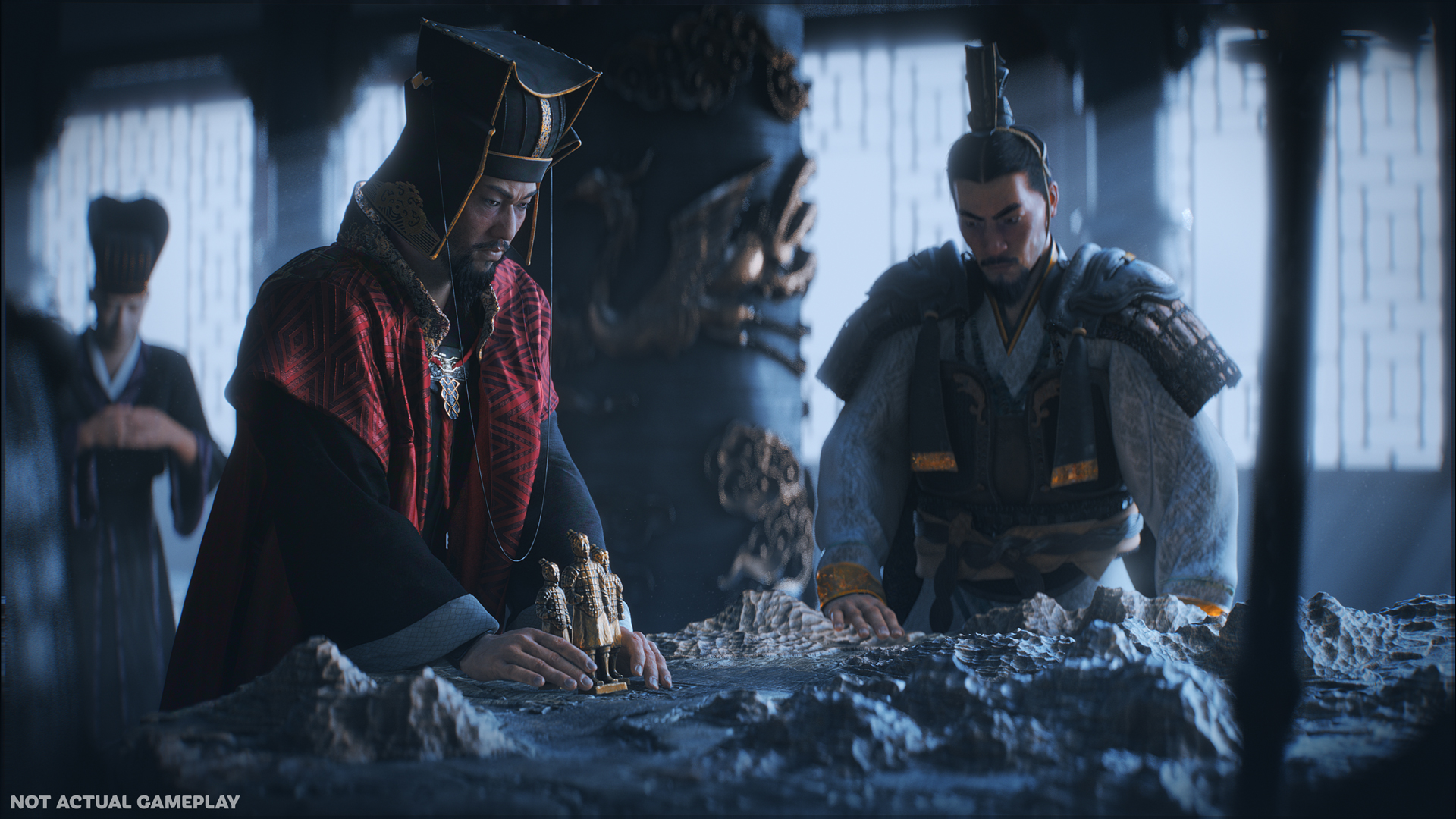
With so much history to cover, it could have taken the team months to pinpoint the areas to focus on. Thankfully, one legendary Chinese novelist had already performed such a task and provided the team with a starting point.
Luo Guanzhong’s “The Romance of the Three Kingdoms” is one of the four great classic novels of Chinese literature. Spanning 120 chapters and drawing comparisons to the works of Shakespeare, the 14th Century novel romanticizes the major players of the time, and offered a platform for Creative Assembly to work from.
“Luo Guanzhong made these characters into legends. He took their achievements, the events, and the things that they did, and dramatized them in a way that has informed Chinese culture ever since,” said Bickham. “So even in modern day, you’ve got games like Dynasty Warriors, films like Red Cliff—that’s bang in our period with the same characters we have in our game—and comics, cartoons, and other movies. The novel is so hugely influential right across Asia, not just in China, that we’ve got a body of character sketches that we can really work into the game to make it much more colorful.”
Romance Versus Realism
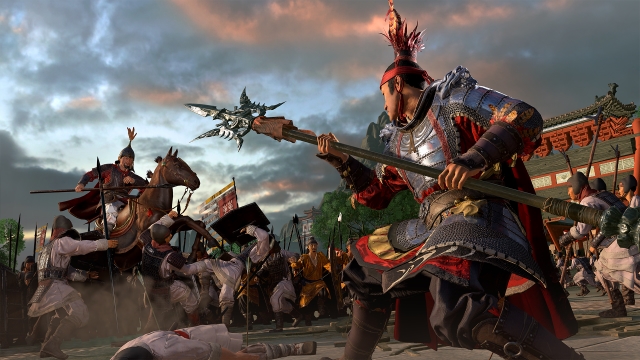
This exaggerated perspective of real-life events could lead some Total War fans to worry that the realism of some previous entries in the series may have been abandoned. Those fears should be unfounded though, with Three Kingdoms comprised of two game modes—Classic and Romance—to appeal to different players.
“In Romance mode, you have these larger-than-life characters who will duel on the battlefield in spectacular fashion with a load of special abilities,” explained Bickham. “Those characters and duels can turn the tide of battle, so you’ll be able to take one of your powerful hero units and plow through enemy lines and perform area attack moves, so that’s us being faithful to Romance of the Three Kingdoms. In Classic mode, the characters are still there and they’re still the centerpieces of the game and appear in battle, but they’re more like traditional Total War generals—they’re not superhuman and don’t have thousands of hit points, they’re effectively just men on horses with a bunch of skills attached.”
These subtleties extend far beyond the warlords, generals, and other major characters in Three Kingdoms too. The overall battles are impacted to varying degrees, with fatigue playing a larger role in one mode than another.
“There are more fireworks in battles in Romance mode, principally because of the characters, but also fatigue plays less of a part on your troops,” stated Bickham. “They can run around the battlefield, be repositioned etc. In Classic mode it’s a bit more considered and realistic. If you run your troops around all over, then they’re going to get tired. They not only move slower, but if they stand still you’ll see them panting. And they don’t fight as well, which leads to low morale as they know they’re not fighting as well as they can be. So fatigue plays a big role in both modes.”
Bringing Balance to the Forces
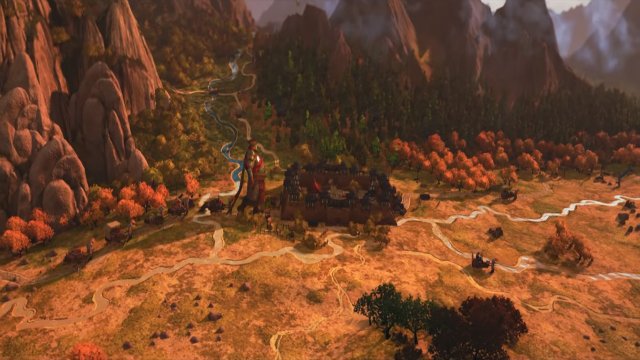
With so many characters playing their part, it may have proven difficult to protect against imbalances on the battlefield. It’s a problem that Creative Assembly looked to solve with another staple of Chinese culture—the art of Wu Xing, otherwise known as the Five Elemental Theory.
“Wu Xing is based on five elements – water, earth, fire, metal, and wood,” said Bickham. “Each one supports the other so, for example, wood feeds fire, which creates ash for earth, so you have a cycle of support, and we built a lot of the game around those systems.”
The team was able to balance out each warlord’s strengths and weaknesses based on their assigned element and, in turn, who they were strongest or weakest against when compared to other generals in the game.
“Every character has some form of specialization based on these five symbol archetypes,” Bickham explained. “Vanguards are our fire characters—they’re all about commanding troops in an aggressive fashion, running around with their cavalry, and harrying the flanks to pull enemy armies out of shape. Then we have commanders, who are earth characters. They are solid and stand with their troops, and they have a massive radius around them to buff their troops and improve their defensive capabilities. Each character is better or worse at dueling [each other], so a strategist – the educated ones, and who wear blue due to their water symbol – is really never going to duel as that’s not their strength.”
The dueling system is a new gameplay mechanic that offers players the opportunity to pit their best warriors against their opponents. During battles, players have the option to instigate or accept duels with enemy faction leaders, and these personal battles can prove to be the difference between victory and defeat, particularly in Romance mode. Specific instances during the game’s huge battles, however, may mean that you’re not in a position to accept duels—a point that Bickham is keen to stress isn’t forced upon players.
“If an enemy leader challenges one of yours to a duel, you can decline that duel,” he stated. “It’s important that we don’t lock people into them as then you’ll always guarantee that one character will win as you’ll always take your champion and smash that squishy strategist. So you can opt to decline them, but make a note of who the enemy’s champions are, and duel them with your higher level champion, as long as you put the right skills in.”
All for One, and One for All
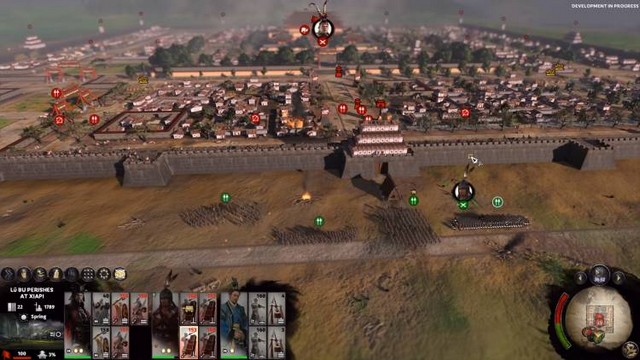
Total War: Three Kingdoms is a title that looks to pay tribute Ancient China’s illustrious history, while also offering different game modes to players based on how they want to play. The studio wants the game, which will launch on PC, Linux, and Mac in March 2019, to serve all fans. Bickham is hopeful that the portrayal of this time period and a multitude of gameplay options means that everyone will be catered to.
“We want to service everybody, such as those people who are excited by those Dynasty Warrior visions of the characters,” he opined. “Other players, who have grown up with the series, can ignore that and just play a classic game experience. We want to cater to all.”
